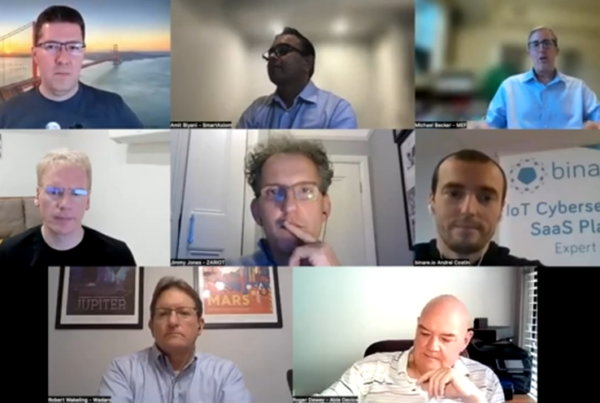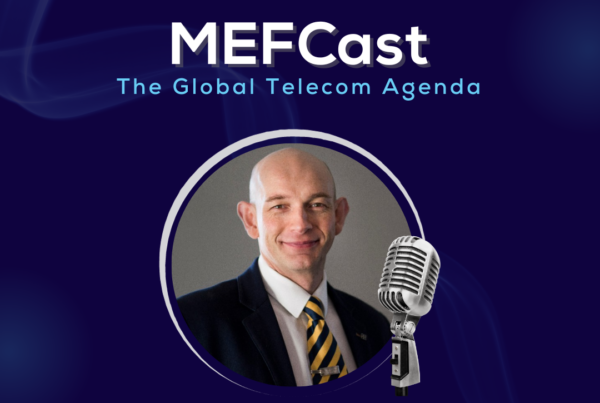Consumers have a confused attitude to digital privacy. But this just makes it more important for enterprises to take charge. That was the conclusion of an expert panel at MWC convened by MEF. Tim Green was listening…
“I literally couldn’t care less what consumer think about privacy. They have no idea what they are talking about.”
What a way to open a panel session about trust.
But this is typical straight talking from the ceaselessly entertaining and thought-provoking Dave Birch. He was opening the debate at MEF’s ‘Trust in a data-driven economy’ leadership session during MWC 2017.

The panelists were:
Heather Hinton, CTO Cloud Security, Privacy & Compliance at IBM Cloud & Cognitive, Katryna Dow, Founder & CEO of Meeco, David Poole, Business Development Director at myPINpad, Emanuele De Leonardis, Director, Data Strategy & Governance at Orange and Dave Birch, Director of Innovation at Consult Hyperion.
Birch, the director of innovation at payments consultancy Consult Hyperion, may have a dismissive view of consumer self-awareness when it comes to privacy.
But this, he argues, is exactly why companies should sort it out.
“Consumers say they value privacy, but they don’t really mean it,” he said. “You could ask them to give their opinions and use their Facebook profiles to log in. And they would all do it!
“So it’s our industry’s responsibility to make make privacy part of an upfront proposition.”
myPINpad’s David Poole noted the need to prioritise and improve trust in the e-commerce space. He reflected that retailers and their customers have contrasting priorities when it comes to digital shopping.
“A merchant or acquirer will say speed is everything. What drives them is cart abandonment. But only two per cent of consumers think speed is more important than security. They’re thinking about data breaches and fraud,” he said.
Happily, Birch believes that new ideas around digital identity can tackle speed and privacy, without compromising either.
Watch the presentations and panel in full now
He argued that a new digital identity infrastructure (with banks and others storing people’s profiles) would reduce the need for long passwords and form filling. And the phone would be the vital ‘authenticator’. All details would be validated with a PIN or fingerprint, which could validate a person’s identity virtually ‘in the background.”
In so doing it would perform the magic trick of keeping people safe and private while also speeding up transactions.
He said: “The idea that there’s a trade off between security and privacy is changing. It’s a fading notion based on a lack of understanding of technology.
“We should be setting the bar higher. We want security AND privacy. What that means for incumbents is a shift in perception. (Privacy) has to become an upfront consumer proposition, rather than a back office hygiene factor.”
Birch’s fellow panellist Emanuele De Leonardis gave real-world examples of this thinking. He talked about specific products Orange has launched, which it collectively calls ’privacy marketing’.
They include a ‘trust badge’. This is an SDK that app developers can deploy to give users clear information on which data points are being collected for which purposes. Users can even opt out if they wish. Orange has already used the trust badge in its own apps.
Another tool is the ‘privacy wall’ – a browser plug in that lets people block web trackers, aggregate passwords and gather all online form data in one place. It even supplies a one-time email or mobile number to avoid spam.
“We feel compliance is not enough,” said De Leonardis. “It’s just box ticking. You need to empower customers to control data and use it for their own objectives.”
This goes to the heart of what Katryna Dow is trying to achieve with her PIMS (personal information management service) Meeco.
Dow believes people must regain control of their personal data and use it to get more value from the things they do and the stuff they buy.
She said: “People don’t wake up and think they need a privacy solution. They want to book a holiday or rent a car or tackle a family crisis. There’s an opportunity to connect the consumer, the citizen, the patient or the student into that value chain.
“For 18 months we’ve been proving this. 94 per cent of people say that when there’s clarity around purpose of data being collected and how it’s being used, engagement goes up. So it’s actually great for business!”
Of course, not all data needs to be personal. At IBM Watson, the real value of the data accrues when it is aggregated. Then, it can reveal patterns and insights everyone can use.
This is why Heather Hinton stressed the importance of de-identifying and anonymising data sets. “People assume privacy is baked in and that someone is doing it for them. So we protect data before we collect it and, if it’s being used in a specific context, we apply the right controls. We can also use cryptographics to remove information but ensure it’s still useable.”
GSMA Mobile 360 Series – Privacy & Security 2017
The GSMA, in cooperation with The Hague Security Delta and The Municipality of The Hague, is hosting the second annual Mobile 360 – Privacy & Security event to address the inevitable challenges that enterprises face with digital transformation.
Expect two days of keynotes, panel discussions, workshops, and technology demonstrations – including a session on Personal data and consumer Trust featuring MEF CEO Rimma Perelmuter.
Find out more







One Comment